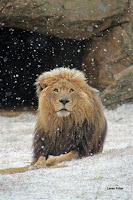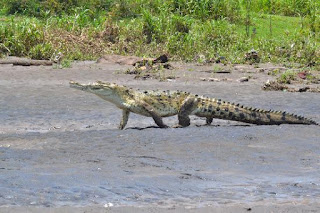Travel tips Africa remains one of the last frontiers of travel.Non-air-conditioned travel, that is, i.e. the kind where you risk stubbing your toe occasionally or getting genuinely lost.From gorilla sighting in the Ugandan highlands to skiing -- yes, skiing -- in Morocco, it promises untold travel wonders.But new Africa hands should worry less about stocking up on viral jabs and safari suits than ditching their preconceptions.
Africa can be very cold indeed
 |
| Lion |
It might straddle the equator but not everywhere in Africa is scorching.
Mt Kilimanjaro (Tanzania) and Mt Kenya both have glaciers and nights can be dangerously chilly in the desert, with temperatures dropping to as low as -10C.
It snows in places, too.
You can go skiing in the Atlas Mountains in Morocco, the Maloti Mountains, Lesotho and in the Eastern Cape Highlands, South Africa.
Alongside desert, there are mountains and rainforests
Africa does have vast swathes of desert and flat savanna but also mountainous and exceptionally green parts.
There are the sprawling rainforests of Uganda, Rwanda and the Democratic Republic of Congo (Zaire) and the soft green hill country of Senegal, Guinea and Tanzania.
For more cultivated greenness, South Africa's garden route, on the south-east coast, is so-named because of its lush vegetation and lakes.
And not every desert is a stretch of barren wilderness.
The Kalahari is known for its spring flowers, while the Namib, the oldest desert in the world, is home to desert-adapted elephant, rhino, giraffe and lion.
There are the sprawling rainforests of Uganda, Rwanda and the Democratic Republic of Congo (Zaire) and the soft green hill country of Senegal, Guinea and Tanzania.
For more cultivated greenness, South Africa's garden route, on the south-east coast, is so-named because of its lush vegetation and lakes.
And not every desert is a stretch of barren wilderness.
The Kalahari is known for its spring flowers, while the Namib, the oldest desert in the world, is home to desert-adapted elephant, rhino, giraffe and lion.
Hippos are the big killers
 |
| Hipo |
You should worry less about lions and Nile crocodiles and instead keep an eye out for hippos.
They're the biggest people-killers on the continent.
Found in sub-Saharan Africa, the animal is aggressive, unpredictable and can charge at 28kph.
If you're in a boat (where many people will encounter them) hit the sides to signal your position.
If on foot, keep your distance and never get between a mother and her calf.
Hippos are most aggressive in the dry season when water levels are low and food supplies limited.
Listen out for oxpeckers since the birds issue warning calls if hippo are around.
You don't need countless visas ...
If you're traveling in West Africa, consider getting a Visa Touristique Entente (VTE) which covers Benin, Burkina Faso, Niger, Togo and Cote d'Ivoire all in the one document.
It costs around $50, is valid for up to two consecutive months and should save you time and money.
Embassies of Benin seem to issue these with the least amount of hassle, although theoretically they're available from any of the countries' embassies.
for more info get it in here : CNN.COM















